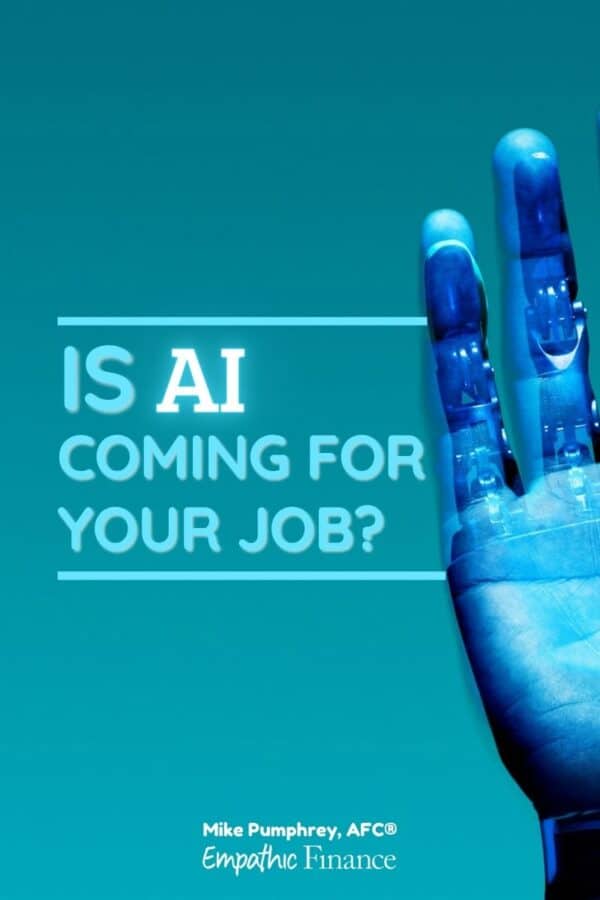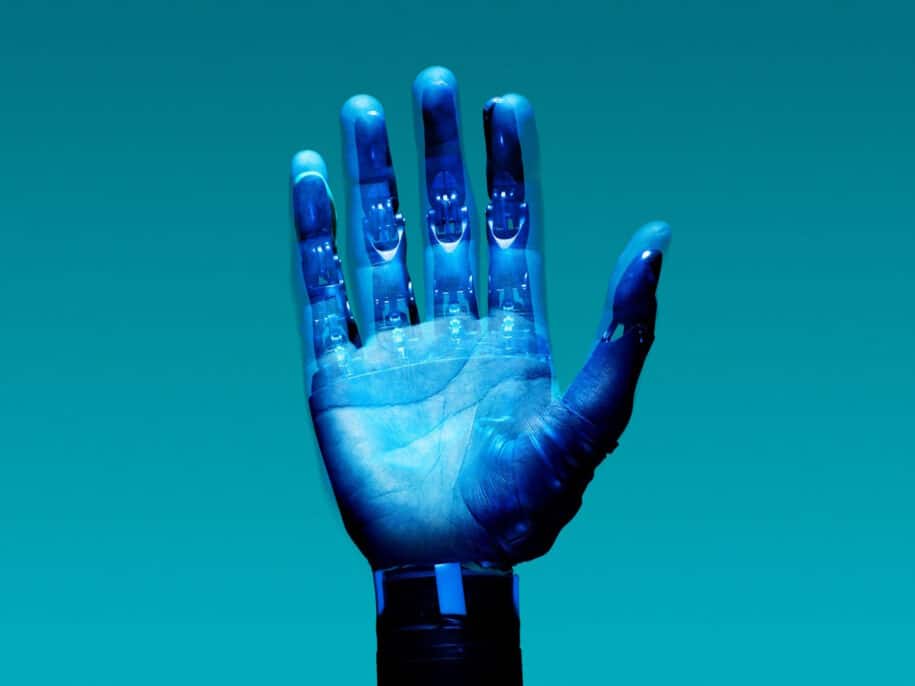With AI becoming mainstream, the question is whether it will lead to mass job losses. Despite the evidence, I don’t think it will.
I remember when I was about 7 or 8, I really wanted a specific stuffed bear.
But this wasn’t any stuffed bear, this was Smarty Bear. Smarty Bear was a toy that, when you talked to it, it talked back to you!
I remember dreaming of having a little companion in my room that I could speak to and it would speak back to me. What kinds of conversations would we have? I was so excited.
You can imagine what happened, of course. The bear turned out not have a consciousness at all, but when you spoke nearby it, it would play a prerecorded snippet of sound and then stop. In that respect, it was rather like a talking Magic 8 Ball.
Not needing a Magic 8 Ball at age 8, I never used it after the first night. (Sorry, Mom.)
Now, you can either blame me for being gullible, or you can blame the TV commercial creators who clearly wanted to implant this idea in my head. But clearly, the desire for a companion to talk to and with is exciting, and perhaps an innate one in all of us.
And I see this because of the excitement and frenzy around AI, specifically the ChatGPT chatbot and its various incarnations.
Except this time, it definitely feels more real. There are sites where you can purchase an AI girlfriend/boyfriend, and there have been news reports of people “falling in love” with their AI chatbot.
But AI isn’t just becoming “your plastic pal who’s fun to be with“. Underneath all this gee-whiz-isn’t-this-fun? exterior, there’s a fear that many jobs are about to go away because of AI.
Is that true? And is your job at risk? Well, I don’t have a crystal ball (or even a Smarty Bear), but here’s what I’ve seen.
Table of Contents
The next great hope for Silicon Valley
Remember the metaverse? Do you remember when Facebook renamed itself Meta in order to build the metaverse in order to do…something? We would all be living in this virtual world, which would enable us to do…something. We weren’t sure what, but Facebook was spending billions of dollars on building it.
Remember NFTs? Those digital collectibles which were going to liberate artists and allow creators to become rich? Remember how everyone was going to want them?
How about cryptocurrency? Remember when Bitcoin was going to democratize finance and keep big banks out of the pockets of freedom-loving citizens? And now we have Bitcoin ETFs from Blackrock! So much for democratization.
What do all these have in common, and what do all these have in common with AI?
They are all desperate corporate attempts to build (or get in on) the “next big thing”, the thing that will make companies rich and dominant in the economy.
Running out of ideas
For years, Silicon Valley and tech companies have come up with world-changing inventions: computers, digital music players, smartphones, tablets, etc. These “disruptions” made a lot of people very rich, from CEOs, to their programmers, marketers, and designers.
The problem is that pretty much after the iPhone, technology has pretty much been able to do whatever we wanted it to do. There haven’t been any other really world-changing tech ideas since, and everything else has been tinkering around the edges.
This meant that growth has been slowing down, and massive valuations, while still happening, weren’t increasing as much as before.
Enter all those “next big thing” ideas above. Each of those above has been promised to us as being the thing that will change the world, and your life, and that you had better get on board or else.
But these ideas aren’t and never were the next big thing because they solve problems that no one really has.
The ideas were bad anyway
Cryptocurrency was touted as a way to escape the banking system, but it turns out that we actually like the banking system, and all the regulations and protections that it gives us. At this point, crypto is just another gambling system. It made some people very wealthy, but most people lost their shirts.
NFTs were even worse, because they made even fewer people wealthy, and had even less of a reason to exist than cryptocurrency. When people realized that they didn’t even own (in a physical sense) the digital token that they had bought, most people lost interest.
The Metaverse has been around in science fiction for decades, and Second Life has touted a metaverse for twenty years. The problem is that life isn’t Ready Player One, and the technology to make a suitable virtual reality experience isn’t anywhere near possible yet, assuming people actually want it, which is unclear. (And let’s not forget that Ready Player One was a dystopia.)
All of the above systems cost billions of dollars, and haven’t really made a return on their investments. It’s unclear that they ever can.
I don’t own, and have never owned, a smartphone, but I at least recognize how it revolutionized the way that we interact with our world. In retrospect, of course people wanted a computer in their pocket.
Can you say anything like that about anything else in the above list?
AI: A new hope
Which leads us to AI.
Everyone was excited by the release of ChatGPT, which presented the promise of an everything app holding all of the world’s knowledge.
All of the major tech companies decided to move into the new AI race. Microsoft put OpenAI on the payroll, Google shoved Gemini into every part of its ecosystem, and Apple released something called Apple Intelligence, whatever it is.
The idea was/is that the tech company that can “win” the AI race will trap users into their ecosystem and extract endless sums of money from them or their advertisers, just like they have been doing for years now in other areas.
Meanwhile, people looked at the results of ChatGPT, Copilot, and the rest, and thought either “I could lose my job” or “I could lay off a lot of people”, depending on where they were in the employment hierarchy.
AI is kind of terrible
Let’s be honest. AI is amazing on first blush, but the more you use it, the less amazing it becomes.
The chatbots that people are using are “generative” AI, which means that they don’t actually know anything, but just predict the next word that makes the most sense. It by definition, cannot be relied upon for correct information. Suggesting glue on pizza? Inventing court cases that don’t exist? All are features, not bugs, of generative AI. You can’t remove this, unless you build a new system.
And I’m sure everyone has seen those uncanny images generated by AI with people who have six fingers or alien written text. And let’s not even talk about videos generated by AI. I won’t link to any of this to keep you from having nightmares.
These processes are powered by data centers that cost billions of dollars a year to run. Meanwhile, no AI company is profitable. OpenAI, maker of ChatGPT, the most popular AI tool, lost billions of dollars last year. Is this likely to change? Even if everyone paid $20 a month for ChatGPT (which they won’t), that wouldn’t cover those kind of losses.
AI is a good opportunity to fire people
And yet, there’s the question about those jobs out there, the ones that can be “replaced” by AI.
We’re starting to see entry-level positions not be filled, as this kind of work is increasingly being handled by AI processes.
And executives are starting to salivating at the prospect of running the same company but with fewer employees. After all, think of how much more money you could make if you didn’t have to pay people?
This is true nihilism at work, and this view is on the rise.
Companies may talk of wanting to preserve jobs publicly, but in reality, they are looking to lay people off.
Duolingo, the language learning app, recently announced that they are going to replace contractors with AI. Will it be garbage? Probably. Will people care? I hope so, but who knows?
Saying the quiet part out loud
Some companies are starting to say the quiet part out loud about using AI to lay off people.
And this is the ultimate example of that: Mechanize, a company out of San Francisco, of course, whose explicit aim is to replace white-collar work with AI.
It’s a chilling read, and also very nihilistic. These people are openly wanting to crater the employment system by making as many employees as possible obsolete.
What’s the end game of this? How does this make our society a better place? Remember that we have no universal basic income, so if masses of people don’t work anymore, the burden of care will fall to the state, which isn’t prepared to handle it. People will be poor, get sick, and die. But Mechanize investors will make a lot of money.
Now, this won’t happen. First, the technology just isn’t there. Second, these founders are probably just looking for an exit strategy, to be bought by Google for a few billion dollars, and then they can go about their merry way.
But the very fact that such an idea is seen as not only viable, but also a good thing, is terrifying. The way I see it, this is open warfare on company executives against their workers, human resources to be hopefully replaced by tech resources.
Sustained AI job loss isn’t going to happen
This is all very depressing, but do I think AI is coming for your job? Actually, I don’t, and here’s why.
- AI is terrible. Eventually people will start to realize that people don’t want half-wrong content, uncanny photos, and videos from hell. We still need people to make sense of the world, and the information contained in it. In addition, we’ve basically run out of new information to train these models on, so they can’t get much better in their current incarnation
- Lost jobs will be missed. Some people are going to be laid off, and some jobs will be going away. But there will be a penalty for this. Eventually, I foresee those jobs, or ones like them, coming back, ether to clean up the work that AI generated, or replacing the sub-par AI processes themselves.
- AI might not be around forever. The massive investments in energy required to run the datacenters that power AI cost money, and the big tech players won’t spend money on it forever without getting something in return. Once they pull the plug on the endless money spigot, I expect to see many of these services either fold or become prohibitively expensive.
It’s a cool party trick
Look, I’ve had some fun playing around with ChatGPT, and it’s actually helped me out of a jam on a few occasions. But in almost every single interaction I’ve had with it, it has given me obviously false information.
Until that changes—and again, in its current form, it basically can’t change—I foresee that eventually the hype around AI will die down. In time, it may become just another idea where we look back and wonder why we were so enthralled by it, just like crypto, NFTs, the metaverse, and, of course, Smarty Bear.




